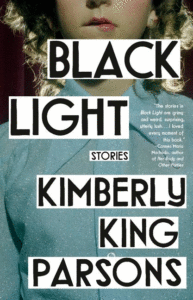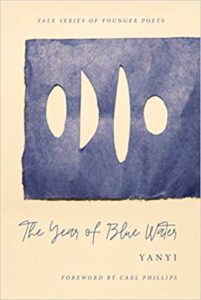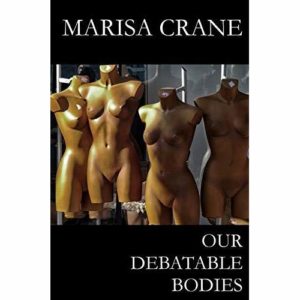
The year is coming to an end, dear readers, and now is the time to take stock of some 2019 book highlights. I think we can all agree that there were many. But it’s been a particularly good year for LGBTQ titles. Of course, we still need more of these, but it’s also nice to see how many fantastic queer writers are getting onto our shelves across multiple genres. (Not that LGBTQIA+ folks mess with genre; we’re here to break rules.) Here are 15 of the best debuts by LGBTQIA+ authors released in 2019.
MEMOIR & NONFICTION
Long Live the Tribe of Fatherless Girls by T Kira Madden
You have read this book, right? T Kira Madden’s memoir of growing up queer, mixed-race, wealthy in some ways and not in others, and swarmed with familial secrets she doesn’t even know about at first—but can still feel—is one of the most gripping and sublimely written books of any genre in recent memory. (I will die on this hill.) Madden writes about being a queer kid who didn’t realize it until she did; a kid in 90s girl culture that glorified going missing, whether literally or metaphorically: disappearing into boys and men, into the shrinking girl-body, into girl rules. But it’s the sentences that will kick you in the shins, conjuring ginger and sea creatures and longing where you don’t expect it. Reading it feels like being given a kind of permission, and a kind of delight—to be who you are, and tell it yourself. Long Live the Tribe will defy what you think memoir is, teach you how to write explosively good sentences if you pay attention. This book is a beam of gay light that everyone should read.
High School by Tegan and Sara Quin
Tegan and Sara are legitimately mainstream-famous, especially for an indie feminist genre-bending pair of queer twin musicians. They’ve made nine studio albums that have sold in the hundreds of thousands over their 20-year (and counting) career. Their debut memoir, High School, recounts a time that was formative in both their musical and personal development. The pair’s career took off not long after they graduated, but they didn’t really start playing music until they were 15 (!!). They were 90s kids in suburban Calgary, and before that career was even an idea, they were already documenting their lives and songs in writing and photographs, on cassette tapes and VHS. Now, we can all benefit from this archival material, which served as the base from which a memoir that is staggering in its detail and generous with its Queer FeelingsTM was built. This is a compelling read even if you know nothing about Tegan and Sara, the band. It’s a vulnerable and honest account of 90s adolescence, self-discovery, internalized homophobia, creative drive, and most importantly, how to practice empathy for your younger self. As an aside, this one should be read in print and audio, because the audio has a lot of old demos and other aural gems, and the print has some great photos.
Initiated: Memoir of a Witch by Amanda Yates Garcia
Witches are having a moment in pop culture right now, maybe because we need a little magic to deal with the reality of the modern world. That sounds facetious, but it’s actually sincere—we as humans are not doing so great at most things. Amanda Yates Garcia doesn’t have answers for how to save the world or anything, but she does have a really good story with a bent toward social and environmental justice. Initiated is about, as the title implies, initiation: the ways in which we are initiated into the world, and how we do the initiating with the people around us. It’s also a fascinating first person narrative about a girl whose mother was a witch, who grew into a young woman who rejected witchcraft, explored her identity through a series of truly wild adventures (some of which were harrowing), and found purpose through creating witchy spiritual community. This is a book about injury and healing, finding oneself, reverence for the natural world, and taking down the patriarchy. So basically, it’s really gay.
Ordinary Girls by Jaquira Díaz
Jaquira Díaz’s total sparkler of a debut memoir covers her early childhood in Puerto Rico, her adolescence in Miami Beach, her time in detention centers and the brief stint in the navy, but what it really does is establish the voice of an extraordinary writer. Díaz deftly plays with tense to create a sense of disorientation within a narrative that is often about being disoriented: living with mental illness in both herself and her family, with the expectations or lack thereof for her life and future, both internally and externally. While navigating lost and found details of her own story, Díaz also experiences love and stability in the midst of chaos, with stronger-than-blood relationships with friends, lovers and family. The depth of layering is strong, from the micro details to the macro structures of identity, white supremacy, colonialism, and Brown, queer, femme resilience and resistance. This book is hard to put down and won’t be easily forgotten.
A Year Without a Name by Cyrus Grace Dunham
This book is such an honest account of one person’s always-unfinished journey through and around gender, identity, and mental illness. It’s a quick read, but punchy—nearly every sentence is sharp, weighty, deeply intellectual and poetic at once. Dunham openly navigates how confusing gender is, how arbitrary and yet how essential. They’re extremely self-aware, which is almost more of a burden than a gift. There’s so much packed into this story—from personal reckoning with gender and race privilege to relentless questioning of self and society—that mainly takes place over two very recent years, but it’s conveyed succinctly in only 200 pages. If you’ve ever asked yourself, “What even is gender? And why do I feel some kind of way about it?” you will find yourself in this book.
Burn the Place by Iliana Regan
Iliana Regan is a famous chef, with restaurants in Chicago and Michigan’s Upper Peninsula. But she was never formally trained. She grew up on a rural Indiana farm with her parents and siblings, and despite her abusive father, in some ways it was idyllic. It was in the fields, orchards, and barns of her childhood—and in her mother’s kitchen—that she developed her sensory and instinct-based relationship to food and cooking. Burn The Place makes no attempt to hide how hard the restaurant and hospitality industry is, maybe especially for a self-taught chef, and a queer one at that: the prologue outlines a fantasy in which Regan burns her restaurant to the ground. But the honesty with which she describes learning about her gender identity and sexuality from the time she was very young, and the mouth-watering passages about food, make this memoir a compelling read. The life Regan recounts in these pages is dramatic and complicated, written with confident voice and reverence for a life informed by queerness.
Gender Queer by Maia Kobabe
In this graphic memoir, writer and illustrator Maia Kobabe has truly given the world—but especially gender nonconforming, gender questioning, and asexual folks—a gift. In not only writing, but gorgeously illustrating eir journey of learning about gender and sexuality academically, socially, and personally, Kobabe is contributing to a much needed canon of stories that have long been actively erased. It’s a fast and uplifting read that is accessible to everyone, regardless of what genre (or gender) you gravitate toward. Gender Queer is honest, visually stunning, and ultimately life-affirming. It claims a space that is like a warm arm around a queer person’s shoulder, and a kind voice saying, “You’re not alone.”
Mamaskatch: A Cree Coming of Age by Darrell J. McLeod
This life story, which spans from McLeod’s early childhood through middle-adulthood is, narrated in first person, but includes the perspectives of many other characters who are deeply rendered with care and empathy. The story starts with an account of McLeod’s mother Bertha’s time in, and dramatic escape from, a Canadian residential school with her sisters and cousins. This is an important setup, as it immediately establishes the theme of the ingrained, pervasive, and evil legacy of the trauma of colonialism and white supremacy inflicted on Indigenous people of North America. As he grows from a curious, loyal, and happy child in rural Alberta, hearing stories from his grandfather and loving the outdoors, McLeod’s life blooms and withers in turns. Through violence and abuse, love and joy, McLeod drifts in and out of close contact with his family members, and meanwhile explores/struggles with his own sexuality and the gender transition of both his sibling and cousin. He writes poignantly about how whiteness and Catholicism drastically—and negatively—changed how gender nonconforming, trans, and sexually fluid people are viewed and treated in Indigenous communities, even within the span of a single generation. Mamaskatch is an absorbing read that brings together one gay Cree man’s experience, both within himself and with those around him.
When Brooklyn Was Queer by Hugh Ryan
In this nonfiction chronicle of the forgotten (or erased) history of queer culture in Brooklyn in the early-mid 20th century, Ryan does an excellent job of piecing together stories from archives. Archives can be as limiting as they are telling, especially when you’re trying to find stories of people who were pushed to the margins; Ryan is well aware of this, and brings it up frequently, always providing as much context as possible to the narrative. Importantly, there are fundamental differences in the ways in which we conceive of queerness now than people have done in the past. Just as crucially, the archival material that can be found about queer folks at all is almost exclusively centered on white people, and white men for that matter. Archives inherently come with the bias of class, race, and gender privilege. Ryan also acknowledges this throughout. When Brooklyn Was Queer charts the universal reality of shifting social and economic tides, and how the queer culture/population in Brooklyn—and in New York City and the nation in general—was and is both an actor in and the result of this.
FICTION
Lot by Bryan Washington
In this debut collection of interconnected short stories centering on working class Houstonians of color, it’s the voices that draw the reader in. A queer Black-Latinx boy, his family, and his neighborhood are drawn with vibrancy, vulnerability and love. Washington brings themes of family, love, race, class, queerness, masculinity, and America to writing that has such nuance and skill that the stories become utterly immersive on their own; even more so as a whole. From Hurricane Harvey to intimate encounters, restaurant jobs to baseball teams, Lot creates a community of characters—and of stories—that are viscerally felt in the body. Reminiscent of the best interconnected short story collections (Jhumpa Lahiri’s Unaccustomed Earth comes to mind), this collection is an example of great storytelling.

Black Light by Kimberly King Parsons
Kimberly King Parsons’ weird, intimate, enchanting debut does a service to the short story form. The characters in these stories are so full of flaws and so human; they are like thick oil paintings: too much color, saturated and alive. Many of them are difficult, sometimes downright unlikeable, but the writing sings at an undeniably pleasing pitch, with many of the sentences hitting such high notes that it feels breathtaking. Two coworkers skip out of their jobs to behave badly in a dingy hotel room; an alcoholic mother listens to her daughter tell fantastical, sometimes disturbing stories in a blanket fort; teenage girls fall in love, or lust, and go hunting for psychedelic mushrooms in cowpies. The reader is in Parsons’ world in these pages, and that’s definitely a place you want to be.
Willa & Hesper by Amy Feltman
This debut novel from Amy Feltman starts out with a couple of young women, who meet in a writing MFA program, falling in love. But this is far from a straightforward romance. Instead, the short, intense relationship at the beginning flings its protagonists apart from each other while continuing to bind them together as they journey through their lives apart. From New York City to Tbilisi to Berlin, with an ensemble of complex supporting characters, this book moves around a lot, but it’s never confusing. It portrays the mental illness of the protagonists with nuance and depth, and includes meditations on faith, fear, sexual assault, modern queer identity (and how fraught it can be), family legacy, and pop culture. Willa & Hesper is a fast-paced not-really-romance about two queer women who are figuring it out as they navigate their early twenties.
POETRY

Year of Blue Water by Yanyi
This debut poetry collection from Yale Series of Younger Poets Prize-winner Yanyi is a delicate and potent meditation on loneliness and connection, grounding and rootlessness. The rootlessness arises in the exploration of immigration, queerness, transness, and solitude. The grounding comes from locating oneself in the body, in writing, and in art, experiencing these things as both solitude and community. The poems are sometimes confessional, and always woven through with a sense of searching—especially for identity—through tarot, TV, reading, and people. Short and poignant, The Year of Blue Water is a small, exquisite collection that’s deceptively easy to read and deeply resonant.
Eyes Bottle Dark With a Mouthful of Flowers by Jake Skeets
The cover of Jake Skeet’s dazzling debut poetry collection is striking: a photograph of a man stark in its lighting, the look on his face with an intensity to it—it’s impossible not to wonder, who is this man? Skeets wrote a post on the Milkweed Editions blog about this cover, which is worth reading to deepen the experience of these poems. But they stand alone even without that context. Crackling syntax, lyrical imagery, and the physical arrangement of text on the page all work to reflect interior and exterior landscapes of Diné people. Dry tributaries, drowning lakes, weeds and flowers, shadow and light; joy and fear in queerness, land, and people; people as plants and as planets, as earth, trucks, trains, and belt buckles. Eyes Bottle Dark challenges colonial linguistic conventions, remains utterly grounded and corporeal while also soaring into the ethereal. It is one of the most exciting collections to be released all year.

Our Debatable Bodies by Marisa Crane
This collection from poet Marisa Crane, published by indie publisher Animal Heart Press, flew a little under the radar when it came out in June, but it’s worth picking up, especially if you’re in the market for some sweet love poems that are paired with some rage-at-the-patriarchy poems. The love poems range from love for a person, for a community, for one’s own life, and for the world in its broken beauty. Crane writes about queer couple fertility, confession, homophobia (external and internalized), anxiety, love, wonder, and hope. Our Debatable Bodies is full of gorgeous stanzas and a lot of hard-fought love.
If you buy books linked on our site, Lit Hub may earn a commission from Bookshop.org, whose fees support independent bookstores.

